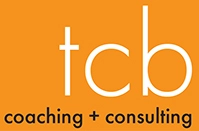Effective delegation is a powerful tool that can transform the way you work. With better delegation skills, you can focus on tasks that align with your strengths and expertise, ultimately enhancing your productivity and profitability.
Delegation is not just about offloading work, or what I like to call “Dump and Run.” Maybe that is tolerable occasionally in a well-developed and healthy working relationship. But it is short sighted at best in other situations. Delegation is an opportunity for your team to gain experience and develop their own professional skills. Improving delegation starts with examining your mindset and benefits from adopting practices that support better delegation habits.
Here are some things I often hear from professional service providers about delegation:
- I can’t delegate because I have no one to delegate to.
- I would rather do it myself so I don’t have to correct someone else’s work.
- I can’t count on others, so it’s easier to do it myself.
- I don’t realize I need help until it’s too close to the deadline to get someone else involved.
- I don’t trust others with my client relationships. I need to keep clients happy so I do it myself.
- I run from fire to flood all day long. It’s a miracle I get anything done, let alone manage someone else.
The people saying these things often do so with a sense of failure or resignation. With less delegation they dig into time they could spend on scaling their practice, developing a new practice area or client, or spend taking care of themselves or their family. And they may feel helpless to make changes, let alone know where to start. If this sounds like you, please know that there are better solutions.
- Start by examining the all reasons you avoid delegating. Write them down. For each one, ask yourself: “What would need to change to shift this from obstacle to opportunity?”
- Pick one that looks most promising in terms of outcome and effort. For this one, write down the first three steps you would take to move toward better delegation practices.
- Ask someone to join you in this assessment and support each other as you work through avoidance and toward improvement.
Delegation Mantra: Delegate early and often.
Take it to the next level with The Delegation Challenge:
1 – Identify what can be delegated. Any task or project for which you are not the only or best person to handle it could be delegated. Delegate those tasks to the most junior person who could do the task (to aid in their development.) For the Challenge, pick one low risk task that meets this criteria.
2 – Prepare tasks to delegate. Prepare all relevant information and materials, and meet with the person to whom you are delegating to explain the assignment. If this is feels uncomfortable, good! We know you’re in a growth zone which is right where you need to be to benefit from this exercise.
3 – Designate a “due date” for the delegated task. Start with the actual deadline and work backward from there to allow time for you to review the work and request corrections before the actual deadline. Schedule a meeting with the delegee on the “due date” you set.
Delegate to grow your delegation resources
and aid in your team’s development.
If that’s as far as you get on the first go, that’s great! Try again and add the following steps to aid in the delegee’s development and growth, and earn their trust as a valued mentor and teacher:
4 – Do not take over the task! Instead, provide feedback and ask the delegee to correct their work. Editing written work is ok but put edits in redline and/or make comments so the delegee can learn from the changes. See if you can accept work that is not exactly as you would have done it.
5 – Talk with the delegee and support them in returning to the project with additional input and tools. They will do fine if you are providing positive encouragement and support like, “I believe in you and I’m invested in your success.” This is true because if they learn, grow and develop it benefits you too!]
6 – Celebrate success! Acknowledge the delegee’s effort and work to overcome challenges. Praise something specific about the work product, such as: “I like how you structured this report to specifically address the client’s questions.” Or, “Great introduction! It really caught my attention and drew me in.”
If you avoid or struggle with delegation, coaching can help! I offer free a 30 minute Consultation to explore issues for coaching and then provide a custom written Coaching Proposal. To schedule a Consultation, contact me at 503-734-7232 (voice or text); or heather@tcbcoaching.com
Image credit: https://www.123rf.com/

